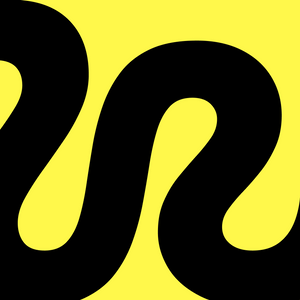
The Future of...Shock: How Shock Got a Bad Name and Why We Should Look Forward to More

Over the last 20 years, shock has gotten a bad name. The 2003 Iraq War began with misguided pronouncements of ‘Shock and Awe’. In 2007, Canadian author and social activist Naomi Klein released her book The Shock Doctrine: The Rise of Disaster Capitalism. Klein described the brutal tactic of using the public’s disorientation following a collective shock – wars, terrorist attacks, market crashes or natural disasters – to push through radical pro-corporate measures, often called “shock therapy”.
Since 2007, Klein has noted how further financial crises and the election of Donald Trump have led to continued use of shock tactics, with Trump seizing on an atmosphere of constant crisis and fomenting chaos.
For many, last year arguably provided the biggest series of global shocks yet, and it has become a comic refrain to say ‘it can’t get any worse than 2020’. Indeed, Oxford Dictionaries expanded its word of the year award to encompass several "Words of an Unprecedented Year" including bushfires, WFH, lockdown and furlough.
To cap it all, shock has even been turned into a business model. NPR recently singled out US show Daily Wire’s host Ben Shapiro as king of mock shock in an article titled ‘Outrage As A Business Model: How Ben Shapiro Is Using Facebook To Build An Empire.’
Shapiro gets more ‘likes, shares and comments on Facebook than any other news publisher by a wide margin’ thanks to article headlines such as "BOOK REVIEW: Proof That Wokeness Is Projection By Nervous, Racist White Women Who Can't Talk To Minorities Without Elaborate Codes".
Shocking leaps backwards vs shocking leaps forward
The shocks referenced above are all broadly retrograde. But shock wasn’t always such a bad thing. Indeed, it’s now 40 years since the broadcast of the seminal The Shock of the New, a documentary series and book written and presented by Robert Hughes, exploring
the development of modern art from the Impressionists to the Cold War era. The ‘shocks’ covered in Hughes’s work relate to great leaps forward for both art and commerce. Instead of being regressive, these shocks were progressive - influenced by advancements in technology, authority, nature, and movements such as Dadaism, Surrealism and Modernism.
So...what’s new?
All of this begs the question: do we have anything new to get excited about these days (rather than simply fearing regressive shocks and a feeling of falling living standards)? Are we working hard enough to shock and upset the right people in new and innovative ways?
Indeed, pre-pandemic, several prominent economists and publications had already questioned whether we were now in an age of ‘Great Stagnation’. In his memorably titled 2011 e-book The Great Stagnation: How America Ate All the Low-Hanging Fruit of Modern History, Got Sick, and Will (Eventually) Feel Better, economist Tyler Cowen declared that the growth had gone.
And in January 2013, The Economist ran an infamous piece entitled “Has the ideas machine broken down?” These pieces argued that the various motors of 20th-century growth had played themselves out, and new technologies were not going to have the same invigorating effect on the economies of the future. “For all its flat-screen dazzle and high-bandwidth pizzazz, it seemed the world had run out of ideas,” said The Economist.
But this downbeat pessimism is finally giving way to fresh hope about some future shocks (of the new and positive variety). The Economist recently raised the spectre of a ‘roaring twenties’ with a piece entitled “Why a dawn of technological optimism is breaking”. Despite a decade of disappointments over advancements in fields like robotics, space travel and flying cars, a recent flurry of discoveries and behavioural changes signalled hope: The success of messenger RNA and bespoke antibody treatments have shown how science continues to empower medicine. Investment in technology and R&D is increasing dramatically. And new tech is being rapidly adopted following the pandemic (such as videoconferencing, digital payments, telemedicine and industrial automation).
Don’t just be productive, be progressive
These predictions of an exciting new dawn come with a warning. According to a study commissioned by Microsoft, Boston Consulting Group and KRC Research, remote working has seen us become more productive, but not necessarily more innovative.
“It’s a challenge to feel connected, confident and communicate effectively with the team, and we know from a lot of research that creativity and innovation largely happen through collaboration,” siad Wharton management professor Michael Parke when commenting on the report.
Indeed, if we want to positively shock, surprise and disrupt, then we must be careful not to just churn out more of the same. As we move forward, we need to start asking ourselves whether we are indulging in ‘mock shock’ and just being noisy in the Ben Shapiro sense (getting mired in the spread of controversy as a goal in its own right). Or are we taking the time to collaborate and innovate, rather than just stagnate? It’s time to think about what we’re going to do to upset the right people and provide a pleasant, progressive shock to the system.
Photo credit: Mason Kimbarovsky on Unsplash













